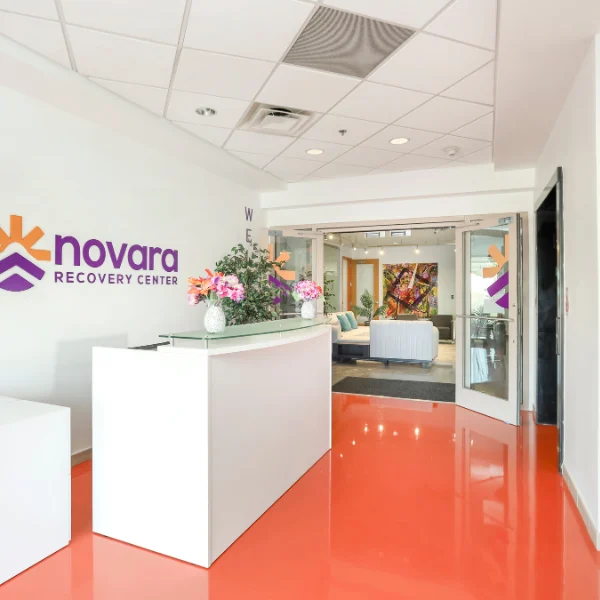Marijuana addiction affects millions across the United States, undermining health, relationships, and personal stability, highlighting the urgent need for awareness and treatment.
Marijuana, weed, pot, dope, grass—they all refer to the same thing. They have different names, but they come from the same place: the cannabis plant.
No matter what you call it, marijuana is becoming more common in the United States. This is especially true as more states decide to legalize it. This drug can now be used for fun in 24 states, three territories, and Washington, D.C. Studies show that about half of Americans, or around 78 million people, say they have tried marijuana at some point in their lives.
Here’s something to think about. Have you ever considered how a harmless habit, like using marijuana, could become an addiction? It may not seem like much, especially with its growing legality. It’s easy to overlook the risks, but they’re real for many people.
Marijuana, also known as cannabis, comes from the Cannabis sativa plant. It usually includes dried flowers, leaves, seeds, and stems.
The main ingredient in marijuana is THC or tetrahydrocannabinol. It has a strong effect on the brain. THC can change your mood, perception, and state of consciousness.
This drug is grown all over the world. It can be found in the U.S., Canada, Mexico, the Caribbean, South America, and parts of Asia. Growers cultivate marijuana outdoors in the open air or indoors in controlled environments, and it thrives in many climates.
It has many street names. These names change based on where you are or who you talk to. Some common names are Aunt Mary, Hash, Hydro, Indo, BC Bud, Chronic, Joint, Mary Jane, Pot, Reefer, Skunk, Weed, Dope, Ganja, and Grass. The list keeps going.
Many people use marijuana in different ways. However, don’t think that one method is safer than another. Methods of use include:


Cannabis use disorder (CUD), commonly known as marijuana addiction, occurs when an individual becomes reliant on the substance. It involves more than frequent usage; it includes the struggle to quit, even when aware of the negative impact on one’s well-being.
Addiction can creep in quietly, affecting your life in ways you might not expect. Whether you smoke, vape, drink, or eat it, the risks are still there. Many people use marijuana to relax or for fun. However, more doctors are now prescribing it for various conditions and symptoms.
The thing is, marijuana contains compounds that alter your mind and body. And yes, it can become addictive.
A marijuana addiction doesn’t just happen overnight; it usually starts pretty casually. Initially, you might use it just to relax, have fun, or take a break from your worries.
But over time, your brain begins to rely on the drug to feel that same sense of relief. The more you depend on it, the more your body adjusts to it. Soon, stopping becomes much harder than you thought.
When you use cannabis often, your brain makes fewer endocannabinoids. These are natural chemicals that help your body function properly.
Endocannabinoids help control mood, hunger, sleep, and other functions. If your brain doesn’t make enough of them, it can affect your mood and body. This may cause you to depend more on marijuana to feel normal or okay.
Cannabis plants, also known as Cannabis sativa or hemp, contain many different chemical compounds. One of the most well-known is tetrahydrocannabinol (THC), which is responsible for its effects on the brain.
When you use cannabis, THC triggers the brain’s reward system. This leads to a rush of dopamine.
Dopamine is a chemical that helps you feel pleasure and happiness. This rush of dopamine feels good in the moment. It makes your brain want that feeling again. This increases the chance that you will use marijuana again.
If you notice that you need more marijuana to feel the same effects, it may be a sign of dependence. Experiencing withdrawal symptoms when you stop using can also indicate this.
Our caring professionals are standing by around the clock, ready to address all your questions.
Cannabis is illegal in many areas of the country. Still, it is one of the most used drugs in the U.S. However, just because they plan to legalize it everywhere, that doesn’t mean it is risk-free.
Consider this: prescribed medications and some over-the-counter drugs can help, but they also have risks. These risks include addiction and even fatal overdoses.
Food is very important. However, it can be a problem for people with food addiction. They often lose control over their eating.
Cannabis does have its benefits for specific health conditions, no doubt. But people can also misuse it, leading to what’s known as a cannabis use disorder. The CDC estimates that about 3 in 10 people who use cannabis develop this disorder. This means they continue to use it even when it causes real problems in their lives.
So, how can you tell if your cannabis use—whether for fun or medicine—has become a bigger problem? Let’s take a closer look at the signs of marijuana use disorder.
You might find yourself reaching for marijuana more often than you intended. What began as something casual can quickly turn into a daily routine. Before you know it, you’re planning your day around it, even putting it ahead of other things you care about.
When that happens, it’s a sign that something’s off. If you’re skipping work, letting school slip, or pulling away from people who matter to you, it’s time to stop and reflect. You may also see changes in your behavior.
Now is a good time to stop and think about where things are going. Other behavioral changes include:
Here are some common physical changes that come with marijuana use:
Using marijuana regularly can take a toll on your body, even if the changes aren’t apparent right away. At first, you might not notice anything, but those effects can become impossible to ignore over time.
Maybe you start feeling less motivated, more tired than usual, or more challenging to remember things. You could also notice that you’re struggling to focus, feeling sluggish, or just not as sharp as you once were. These physical shifts can seriously affect your long-term health and day-to-day life.
And it doesn’t stop there. You might see shifts in how you eat or sleep. Some people get the “munchies” and feel like they can’t stop eating, while others deal with sleepless nights.
It can be hard to see psychological dependence on marijuana. People often use it to cope with negative feelings or stress. You may begin to feel that you can’t handle life without it. If you use marijuana to avoid thinking about your problems or emotions, it could mean you’re dependent on it.
The behavioral changes that people who are psychologically dependent on this substance may show can include:

We know that cost is a major factor for most people when seeking treatment for drug & alcohol abuse in Virginia. Novara Recovery Center works with most major insurance plans to help cover up to 100% of the costs associated with treatment at our program. To find out your personal options for treatment, get a free verification of insurance benefits right now by clicking the button below.









Using marijuana regularly isn’t without its risks. Over time, it can affect your health in ways you might not see coming.
One of the concerns with using marijuana too much is how it can affect your thinking abilities. THC can affect your short-term memory, attention, and focus. If you use marijuana regularly, you may find it harder to think clearly, make decisions, or remember things. This can make tasks like studying, working, or even having meaningful conversations with others more difficult.
Marijuana isn’t as hard on the lungs as tobacco, but smoking it regularly can still cause problems. Many people who misuse marijuana often smoke it. This can cause chronic coughing, more phlegm, and even bronchitis. Over time, smoking marijuana can damage the respiratory system, just like tobacco smoking.
For some people, marijuana abuse can lead to or worsen mental health issues. Many people with mental health disorders, like anxiety or depression, often use marijuana to feel better. While it might offer temporary relief, marijuana smoking can exacerbate these issues in the long term.
In some cases, using marijuana regularly can raise the risk of disorders like schizophrenia. This is especially true for people with a genetic predisposition.
Diagnosis for marijuana addiction typically includes different assessments. For example, a healthcare provider may ask about your history with marijuana.
They want to know how it affects your life. They may also ask if you have tried to stop using it and faced challenges. They may also do physical exams to look for any effects on the body. They will have psychological evaluations to understand a person’s relationship with the drug and any mental health issues.
A person must show at least two of the 11 symptoms from the DSM-5 to get a cannabis use disorder diagnosis. These symptoms must be present for 12 months. The number of symptoms determines the degree of the disorder—mild, moderate, or severe.
When using marijuana feels less like a choice and more like a need, it signals a change. You may notice that you use it more often.
You might need larger amounts to feel the same effects. You could feel anxious or uncomfortable when you can’t access it. Noticing these signs and symptoms early can really help.
Marijuana Withdrawal Symptoms
When you rely heavily on marijuana, you develop tolerance. Your body begins to adjust to its presence. When attempting to quit using it, your body could experience a reaction called cannabis withdrawal syndrome.
Cannabis withdrawal symptoms can vary from person to person, depending on several factors. However, common symptoms include:
These symptoms can be extremely intense. They might make you want to use cannabis again. Getting help from a rehab center might be a good idea. A program like that could offer the support and structure you need to move forward.
Luckily, there are methods to help people who are struggling with marijuana addiction. Getting better may require time and effort, but it’s possible. Begin with that first step. With the right help, you will be on your way to reaching your goal.
Treatments for marijuana addiction often use methods like cognitive behavioral therapy (CBT) and dialectical behavioral therapy (DBT). Other methods include contingency management (CM), motivational enhancement therapy (MET), and more. Behavioral therapy is an important part of many addiction treatment plans.
It can take place in different settings. This depends on what the person needs and how much help they require. These places can be inpatient (living there), outpatient (going there for sessions), partial hospitalization (part-time hospital care), intensive outpatient (more frequent visits), and relapse prevention programs.
Each type of setting provides different levels of support and intensity. Here’s a closer look at these options:
Inpatient or Residential Rehab
Inpatient or residential rehab is a treatment option. People stay at the facility for the entire program. This makes it a more focused approach.
This treatment is often suggested for people with serious addiction problems. It is also for people with mental health problems. It can help anyone who lacks a supportive home environment for recovery.
Outpatient Rehab
Outpatient rehabilitation is for people who do not need to stay in a rehab center. They can attend therapy sessions during the day or at night.
This is for people with stable home lives. It is also for those with less severe addictions. It can help those who finished an inpatient program and are moving to a lower level of care.
Partial Hospitalization Program (PHP)
Partial hospitalization is an alternative to inpatient programs, typically used for individuals who need extended therapy but don’t require full-time supervision. Clients in a PHP program receive treatment for most of the day and return home at night.
Intensive Outpatient Program (IOP)
IOPs are designed for individuals who need some support but don’t require round-the-clock supervision. These programs provide more intensive outpatient therapy. Clients usually receive therapy 3-5 days a week. They can still live at home.
Relapse Prevention Programs
The relapse prevention program is all about helping people healthily navigate their triggers and stressors. Your therapist can combine it with other types of care. This includes outpatient, residential, or IOP. They can also use it as a standalone rehab treatment.
Medications
These options might help ease symptoms like trouble sleeping, irritability, and anxiety. But here’s the thing: researchers haven’t studied them enough yet. The evidence isn’t strong enough for the FDA to approve them.
On the other hand, an over-the-counter supplement called N-acetylcysteine has shown promise. Some research shows that it may lessen withdrawal symptoms by maintaining the natural endocannabinoids in your body. However, researchers need to conduct further studies to determine its effectiveness.
Support Groups
Sometimes, talking to someone who truly gets what you’re going through can make all the difference. Support groups—in-person or online—can give you that feeling of belonging. They provide support and a space where you feel connected.
When you share your story and hear others share theirs, it helps ease the weight of isolation. You’re not just talking; you’re learning new ways to cope. And in that process, you start to hold yourself accountable as you take steps toward recovery.
It’s possible to prevent marijuana addiction! It just requires awareness, solid coping skills, and proper support. If you or someone you know is dealing with this situation, feel free to reach out and take that first step toward getting help.
Taking care of your mental and physical health starts with understanding what’s happening. It’s important to understand how marijuana affects your brain and body. Even though marijuana might seem harmless at first, it can cause some surprising changes, especially if you use it for a long time.
When we discuss the risks, we mean more than just addiction. Using marijuana can also change how you think, feel, and act.
Addiction can sneak up on you without warning. It can greatly impact your relationships, job, and happiness. The more you know about how marijuana affects your body and mind, the better you can make choices for your mental health.
It’s normal to look for ways to feel better when stress or anxiety kicks in. But, you know, depending on things like marijuana for comfort might just make things more complicated in the long run. Why not explore some better ways to handle things? There are options out there that can boost your well-being without any risks.
Exercise, practicing mindfulness, and enjoying activities like painting or writing are great ways to reduce stress. These habits help you relax and make you feel much better and refreshed. By keeping up with these healthier ways to handle your feelings, you’ll slowly stop needing things like drugs to manage your emotions.
If you are struggling with marijuana use, remember you are not alone. There is support available for you. Getting professional help is a significant move to start overcoming addiction. A counselor or therapist can help you find your way through your recovery journey with the proper guidance and tools.
At Novara Recovery Center, we see recovery as a continuous journey. It’s all about learning, growing, and finding new ways to maintain a healthier lifestyle for the long haul.
We are here to give you personal support as you use these strategies. Remember, recovery is not about being perfect. It’s all about moving forward.
We’d love for you to stop by and talk with us at 2815 Old Lee Hwy Floor 2, Fairfax, VA 22031. If you’d prefer to reach out another way, call us at (703) 705-7870 or email info@novararecovery.com. We’re here for you.
Written By:

Mental Health Writer
Geoffrey Andaria is a seasoned writer and editor specializing in mental health content. With a B.A. in English and Journalism, he possesses a solid foundation in crafting freelance articles and conducting research. Geoffrey has also completed courses in social work. He dedicates himself to providing valuable and informative content for individuals impacted by mental health challenges and addiction.
Medically Reviewed By:

Expert Contributor
Dr. Williams is currently a board member for two non-profit service organizations. He holds a Master’s degree in Human Services from Lincoln University, located in Philadelphia, Pennsylvania.
He possesses a Ph.D. in Clinical Psychology from Union Institute and University, located in Cincinnati, Ohio. He holds a license to offer addiction counseling in both New Jersey and Connecticut. Additionally, he has submitted an application to become a licensed psychologist in New Jersey.






2815 Old Lee Hwy Floor 2, Fairfax, VA 22031